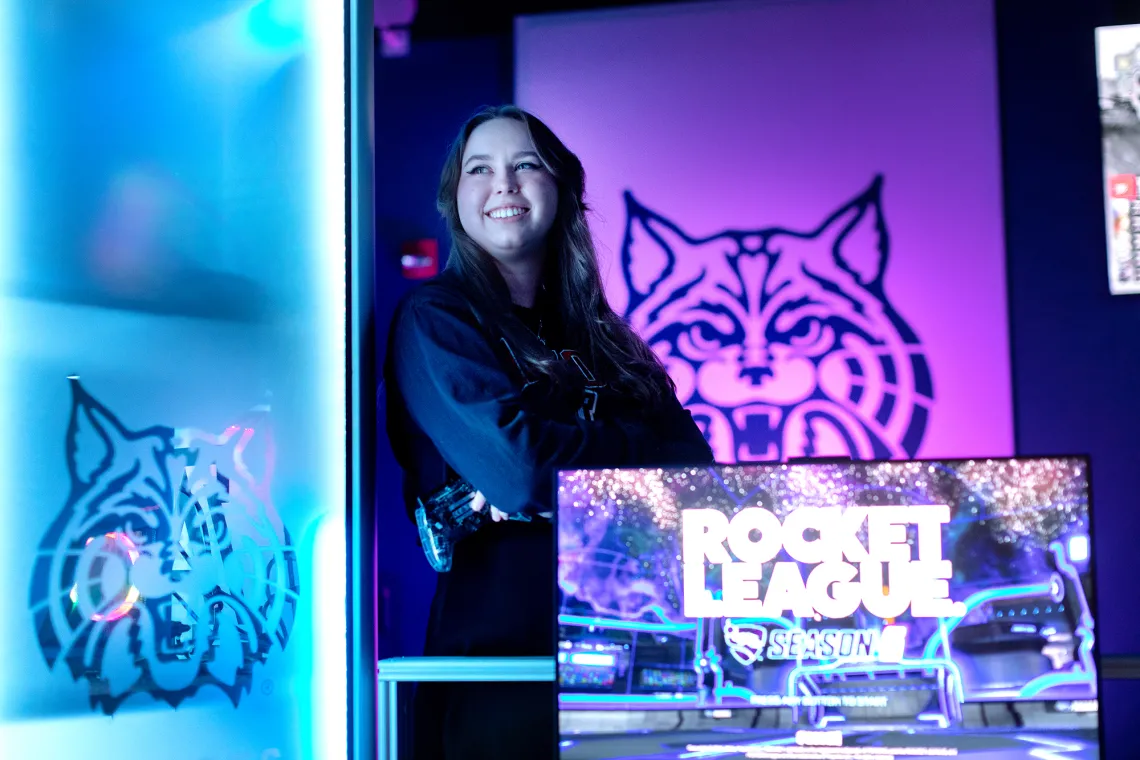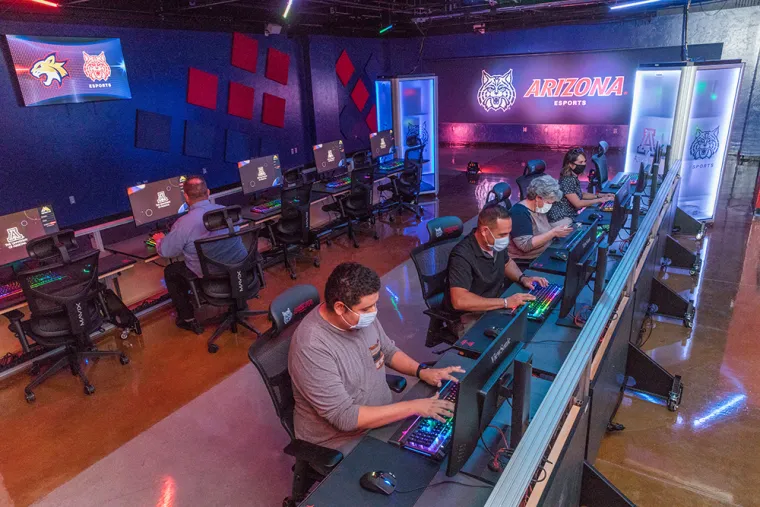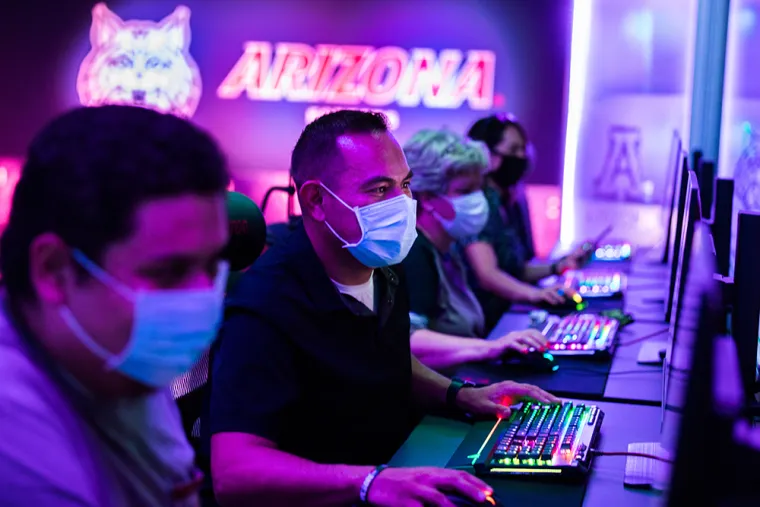Wildcat Gamers
Esports program builds steam and community.

Pharmaceutical sciences student Natalie Benton is a member of the University of Arizona’s first varsity esports team for Rocket League, a video game she’s been playing since it came out seven years ago.
Gaming has always been a big part of Benton’s life. “I would literally run home from school and hop online to play games with my friends. I’m very excited to take my hobby to the next level,” she says.
Benton is among nearly 60 students who’ve joined one of seven varsity teams since the university launched an official competitive esports program in March 2021. A director of esports, Ian Escalante, joined the staff of the Dean of Students Office in November. The Student Union Memorial Center now boasts an esports arena where the teams practice and anyone else is welcome to play games for a fee.
Benton and Escalante believe esports at UArizona can become much bigger. For Benton, part of that means inspiring other women to join her in collegiate esports, currently a male-dominated environment.


Online and in-person gaming spaces, she says, are discouraging for women. “There are women and people out there who are highly skilled, but it takes a lot to make the jump, and some organizations and colleges aren’t ready to facilitate that community. I’m putting myself in the shoes of a varsity player, and I hope they can make the jump with me.”
A recent study conducted by esports organization Evil Geniuses found that 44% of American gamers who identify as female reported experiencing gender discrimination.
Fostering an inclusive environment is one of Escalante’s top priorities, he says.
“What I’m super excited about, truly why I came here, is because I see collegiate esports as a way to build out a community for students that haven’t found it before,” Escalante says. “It’s a way for students to feel like they belong and have a space to explore their passions.”
Opportunities in the current gaming world are elusive for women because it’s a noninclusive space in many ways, Escalante says.
“We can be that difference, because within our community we can say, ‘Hey, we are here for all gamers.’ We’ve decided that our teams at Arizona are going to be reflective of our student body or not exist at all.”
Another priority is establishing scholarships for the players as well as internship and work-study positions in roles such as team manager for students who want to develop leadership skills or hope to work in the growing industry. Insider Intelligence projects that monthly esports viewers will increase to 29.6 million this year, up 11.5% from 2021, and the numbers will continue to grow.
Escalante envisions building a robust esports community with ties to academics, alumni, fans and corporate partners. With that level of connection, he says, esports will become a powerful student recruitment and retention tool for the university.
“The way to keep students is to keep them engaged and involved. Esports does that in ways that many other programs cannot. It’s an amazing opportunity that we have here. I definitely have big plans.”
UArizona Esports
The games played by the university’s official varsity teams are Counter-Strike: Global Offensive (CS:GO), Valorant, Super Smash Bros. Ultimate, Rocket League, League of Legends, Tom Clancy’s Rainbow Six Siege and Overwatch.
Unlike traditional sports, which are administered at the collegiate level by the NCAA, esports currently lacks a singular governing body. Each tournament is unique and unconnected to other competitions.
UArizona students also play esports as part of the Esports and Gaming student organization recognized by the Associated Students of the University of Arizona.
